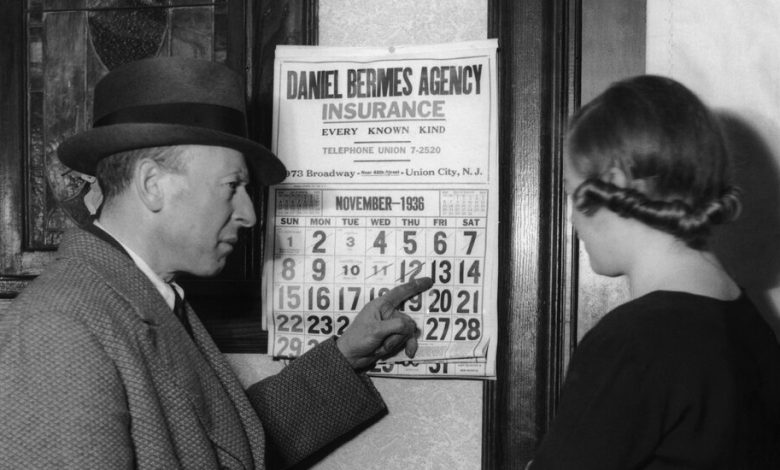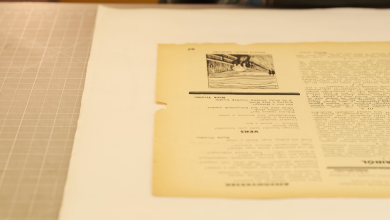Friday the 13th Is Coming Up. Try Not to Be Spooked.

Depending on where you fall on the scale from “extremely superstitious” to “not at all,” Friday may be the most frightful day of your year.
It’s the 13th. It’s Friday the 13th. It’s Friday the 13th in October, the spookiest month of all.
The superstition that the date is unlucky is widespread in Western culture. It has inspired a horror movie franchise, a novel and even a treatise from Stephen King. Building developers and hoteliers have been known to avoid labeling the 13th floor as such, some airlines don’t have a Row 13 and couples have avoided marrying on a Friday if it falls on the 13th.
But rest assured: There isn’t any reason to be spooked.
Blame it on Loki.
While the exact roots are murky, historians say there are several theories as to why fear of this specific date took hold in parts of Europe and North America.
The No. 13 has long been linked to ill fortune in mythology and religion. In one Norse tale, a dinner party of 12 gods derails when Loki, the god of mischief, shows up uninvited. The number also represents betrayal at the biblical Last Supper that Jesus shares with his disciples, with Judas Iscariot joining as the 13th guest.
Executions and sentencings were also sometimes carried out on Fridays in North America, making the day known as “Hangman’s Friday.”
By the 19th century, the idea that the coincidence of Fridays and the No. 13 was an unlucky pairing had shown up in French publications. The superstition became so widespread that century that naysayers in New York and London started Thirteen Clubs, which hosted dinners with 13 guests, who were said to spill salt as a way of scoffing at negative superstitions.
A ship carrying the Canadian prime minister in 1931 reportedly refused to sail on Friday the 13th, according to a British newspaper, waiting instead until 12:01 a.m. on the 14th.
Are people really scared?
Fear of the No. 13 (called triskaidekaphobia) or of Friday the 13th in particular (called paraskevidekatriaphobia) might exist, but psychologists say few people are likely to be debilitated enough by those fears to seek treatment.
“I don’t think it’s a real phobia in a medical sense,” said Stuart Vyse, a psychologist who is the author of the book “Superstition: A Very Short Introduction.” The phobias, he pointed out, are not included in the American Psychiatric Association’s official manual of disorders.
But ideas like Friday the 13th can be sticky, and prime people to notice it more if bad things do happen. If your car breaks down on the way home from a breakup on Tuesday the 10th, you’re just having a very bad day. If it happens on Friday the 13th, suddenly you’re blaming the date.
“We may become more vigilant and more aware because of the bad things that happen on that day,” said Barry Markovsky, emeritus professor of sociology at the University of South Carolina.
Sagar Gupta, 24, used to fear the No. 13. It started during childhood, after he saw a 2009 horror film about a family who encounters a spirit in their new apartment on a building’s 13th floor. “That was a very traumatic experience for me,” he said. “I started overthinking it.” He began dreading passing the 13th floor in high-rise buildings and taking the No. 13 bus route to school in Mumbai, India.
So it’s like any other day?
Yep! But if you’re still on edge, a 2015 study might provide more reassurance.
To see if the superstition had an effect, economists at Brunel University London examined quality of life outcomes for people born on the 13th or on Friday the 13th. Using British government data, they compared about 120,000 people with those birthdays with those born on the 12th or 14th.
Was there any effect on employment, wages or relationship status?
“We found no effect,” said Jan Fidrmuc, one of the study’s authors, who is now a professor at the University of Lille in France. “There is nothing to the superstition.”
More positive associations can also help quell fears. The cure for Mr. Gupta came from one of his favorite pop artists, Taylor Swift, who has called 13 her lucky number in interviews. “That really made that number positive for me,” he said. “If tomorrow I had to purchase a home on the 13th floor, I would do it with a smile.”
Any other unlucky days coming up?
There are more ill omens than just the 13th. In parts of East Asia, the No. 4 is considered unlucky because in many languages it sounds similar to the word for “death.”
In Italy, the unlucky number is 17, while in Spain and Greece it’s Tuesday the 13th, not Friday, that sends a shudder.
If you’re uneasy, Mr. Vyse says, focusing more on positive rituals and beliefs, from “lucky” years to “lucky” routines, may be more beneficial.
Even without any basis to them, such things do create a sense of optimism, he said. “They make people feel better and more hopeful.”



